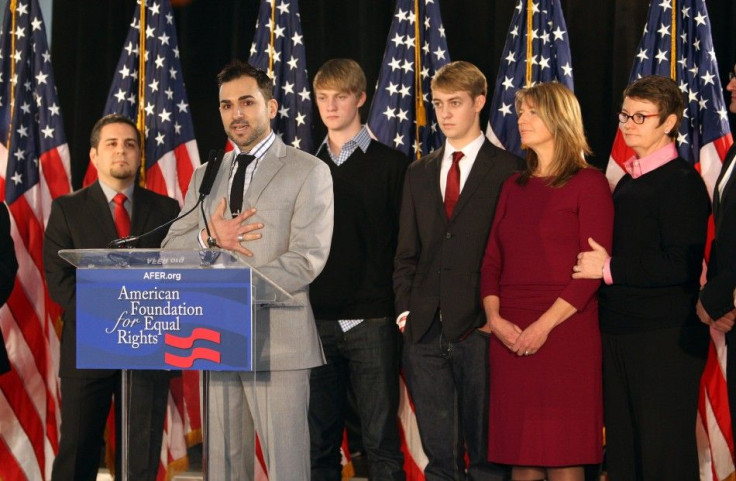California gay marriage ban unconstitutional: ruling

A U.S. appeals court on Tuesday found California's gay marriage ban unconstitutional in a case that is likely to lead to a showdown on the issue in the Supreme Court.
The split 2-1 decision from the 9th U.S. Circuit Court of Appeals featured two Democratically appointed judges voting in favor of striking down the ban, while a Republican judge dissented.
California joined the vast majority of states in outlawing same-sex marriage in 2008, when voters passed the ban known as Proposition 8.
The 2008 socially conservative vote by a state more known for hippies and Hollywood was seen as a watershed by both sides of the so-called culture wars, and two gay couples responded by filing the legal challenge currently making its way through the federal courts.
A federal judge in San Francisco struck down Proposition 8 in 2010, and gay marriage opponents appealed that ruling to the 9th U.S. Circuit Court of Appeals.
Opponents and supporters of same-sex marriage both have said they are ready to appeal the decision all the way to the Supreme Court.
Opponents of gay marriage could ask a larger 9th Circuit panel to hear the matter, or decide to appeal directly to the Supreme Court.
Although the Constitution permits communities to enact most laws they believe to be desirable, 9th Circuit Judge Stephen Reinhardt wrote, it requires that there be at least a legitimate reason for the passage of a law that treats different classes of people differently.
There was no such reason that Proposition 8 could have been enacted, Reinhardt wrote.
About 40 of the 50 states had outlawed gay marriage before a California state court ruled in 2008 that a ban was unconstitutional, leading to a summer of gay marriages. But California voters that November decided to change the state constitution to limit marriage to a man and woman.
© Copyright Thomson Reuters 2024. All rights reserved.











